

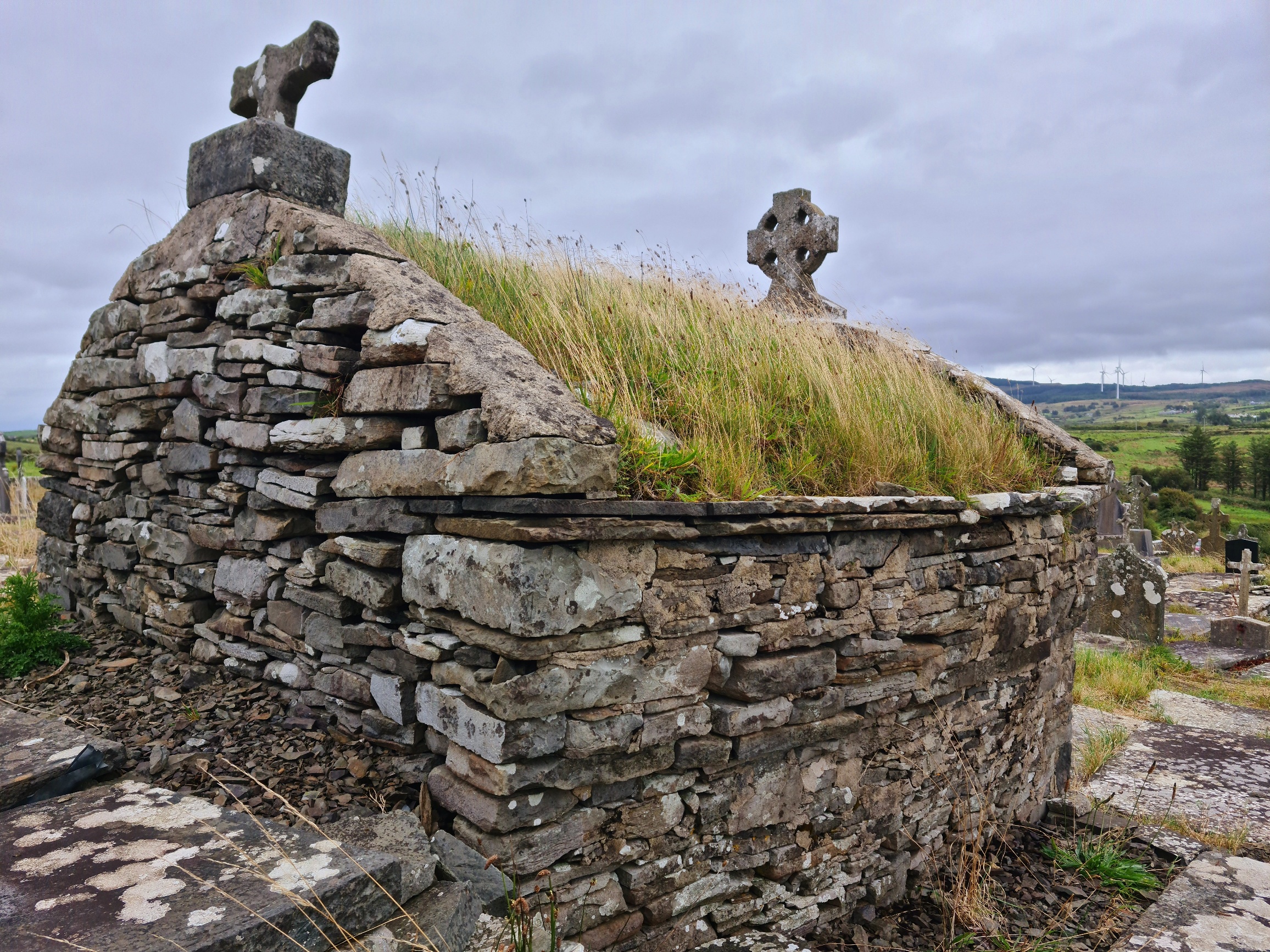
A long, lonely road in West Clare leads up to a graveyard on a hill in what could be the middle of nowhere. But it’s the centre of somewhere for the many souls buried here.
Killernan Graveyard is situated east of Quilty and north of Coore, in the townland of Killernan, Kilmurry Ibrickan Parish.
I can find very little about it on the internet so what I know was first told to me by my late uncle. The road, such as it is, stops short as it was here that the last man died before it was finished. It was built during the famine when work was scarce and food scarcer still. The road, such as it is, is the last work of many men. Their dying testament.
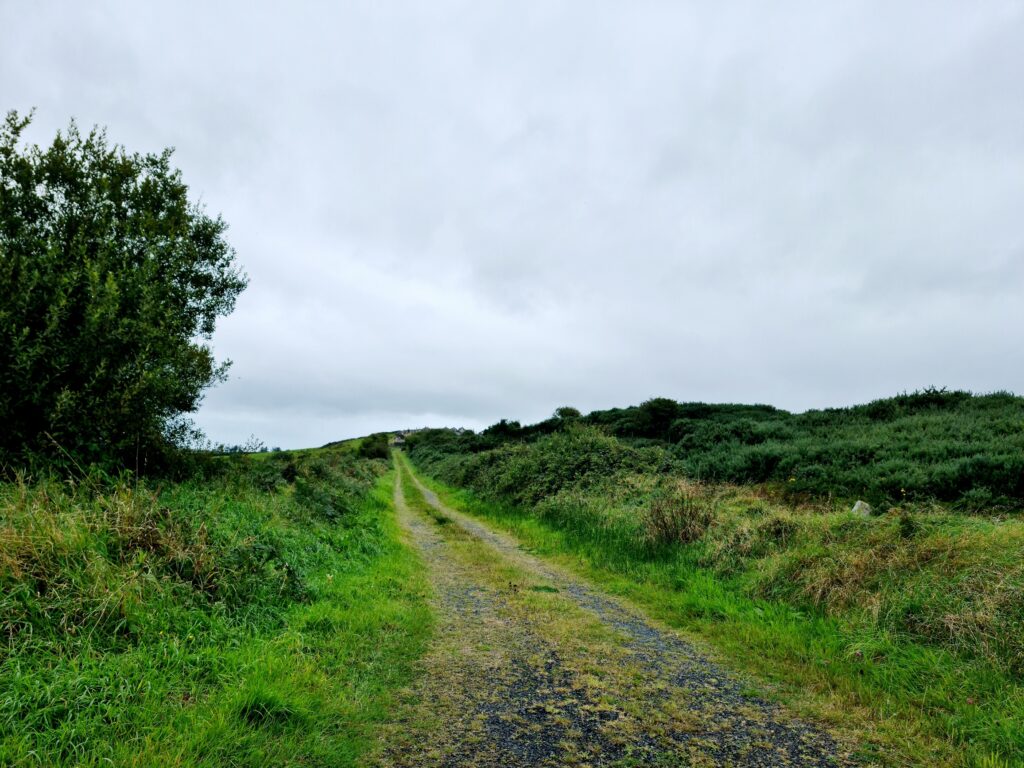
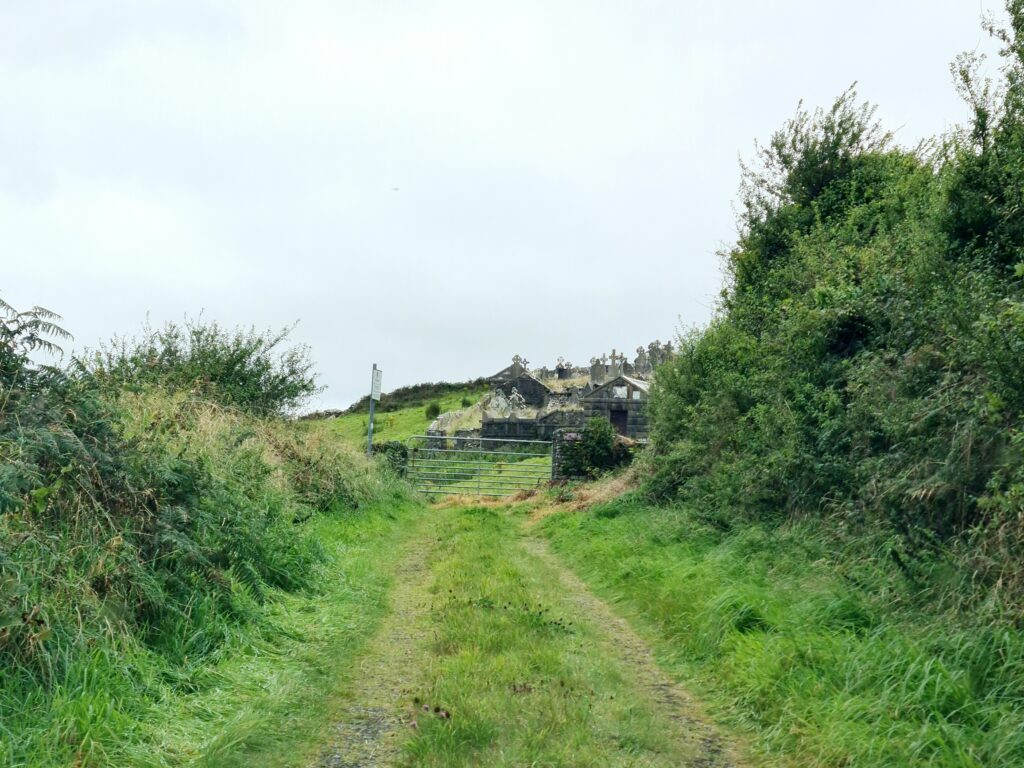
We climbed up the hill and over the wall in search of the grave where our grandparents and great-grandparents were buried. Three families, each connected to these four people, and therefore to each other. The photo is of my grandparents who are buried here also, although what can be read of the inscription mentions only my great-grandparents.
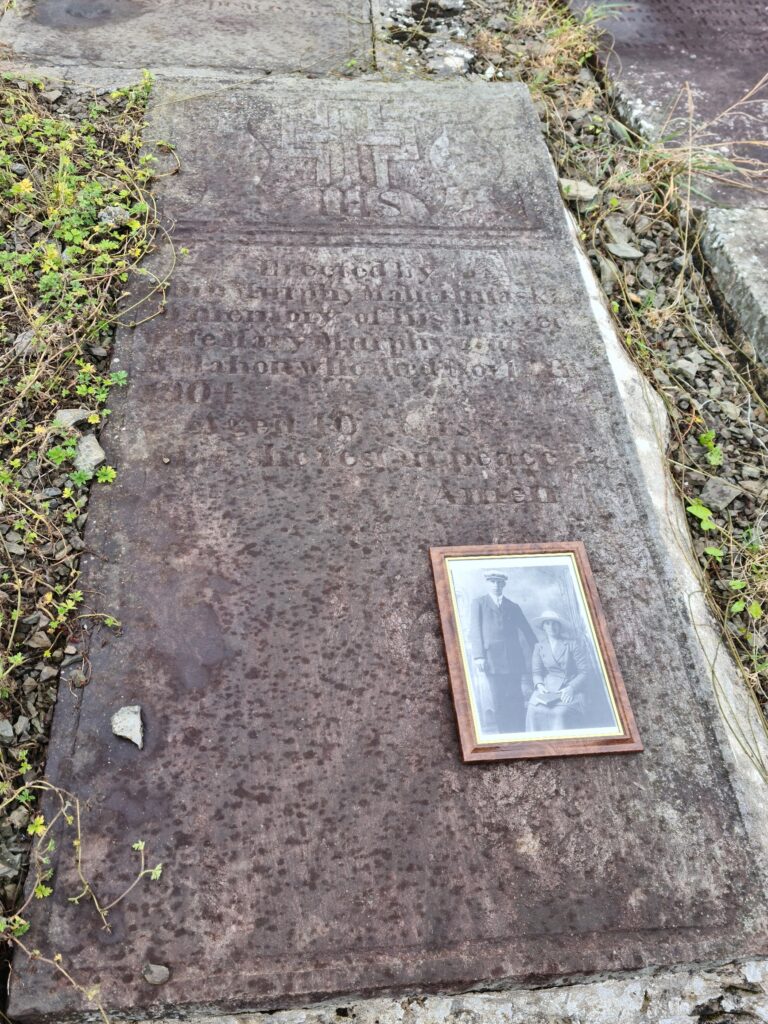
Erected by John Murphy, Maherintaska, in memory of his beloved wife Mary Murphy alias McMahon who died Nov 12th 1904 aged 40 years. May she rest in peace.
Mine’s a popular Irish name. I have three first cousins who share it. Seeing it written on someone else’s headstone reminds me that I want to be cremated.
I have the occasional, fleeting notion, of those buried waiting for visitors like patients in a hospital or old folks in a nursing home. I can see them trying to sit up when the gate creaks, wondering if today is going to be their day.
I trod on a lot of graves that day as there are no paths. There’s no way to walk around. The gravestones fit together like pieces in mad jigsaw puzzles, the flatness relieved in places by Celtic crosses. I said my hellos and apologised, hoping I’d be forgiven.
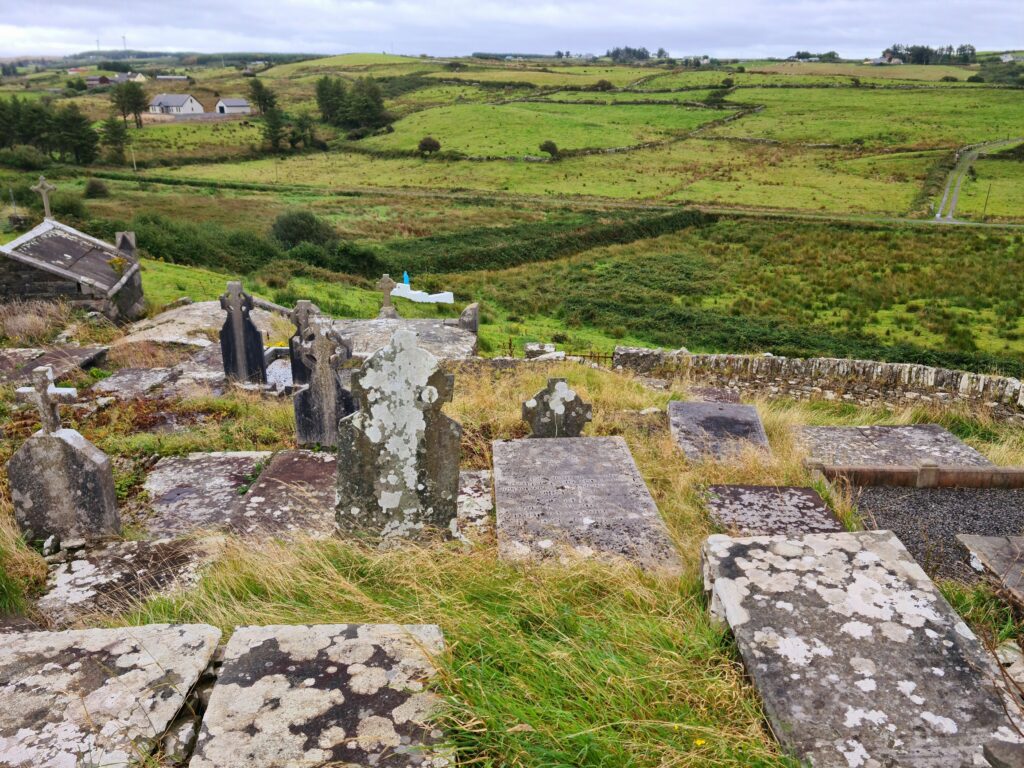
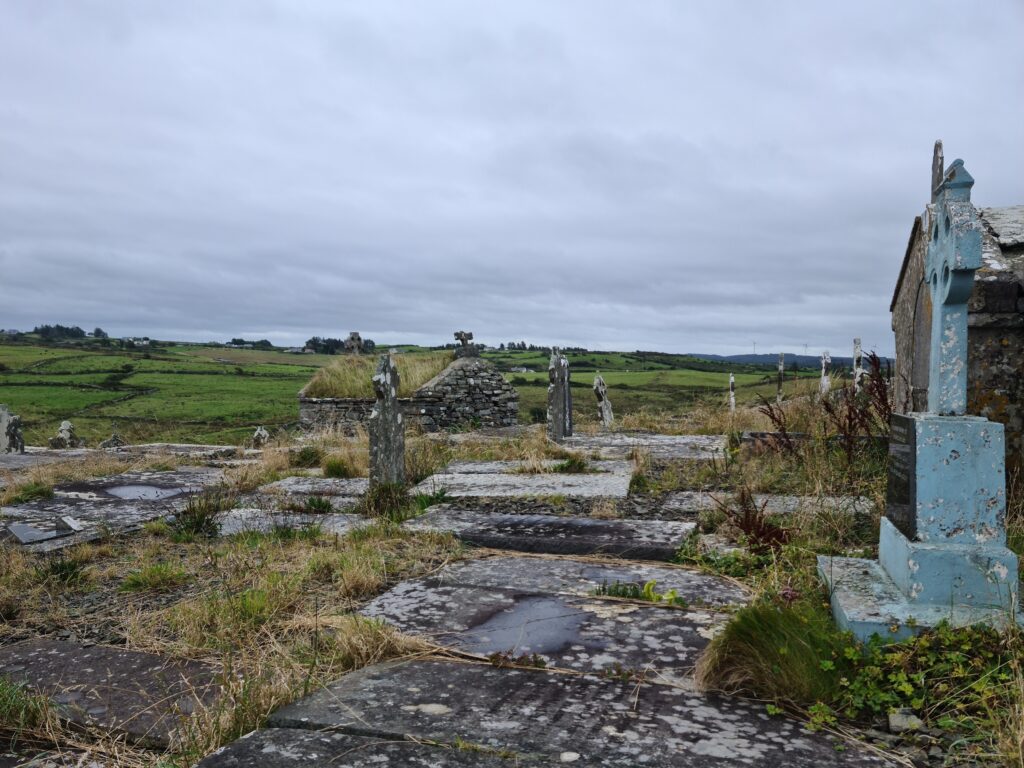
There’s a strange juxtaposition of past and present in Killernan as relatives of the dead come and add new stones to mark their passing. The newest grave I found was dated 1998, so perhaps the tombs are still being used.
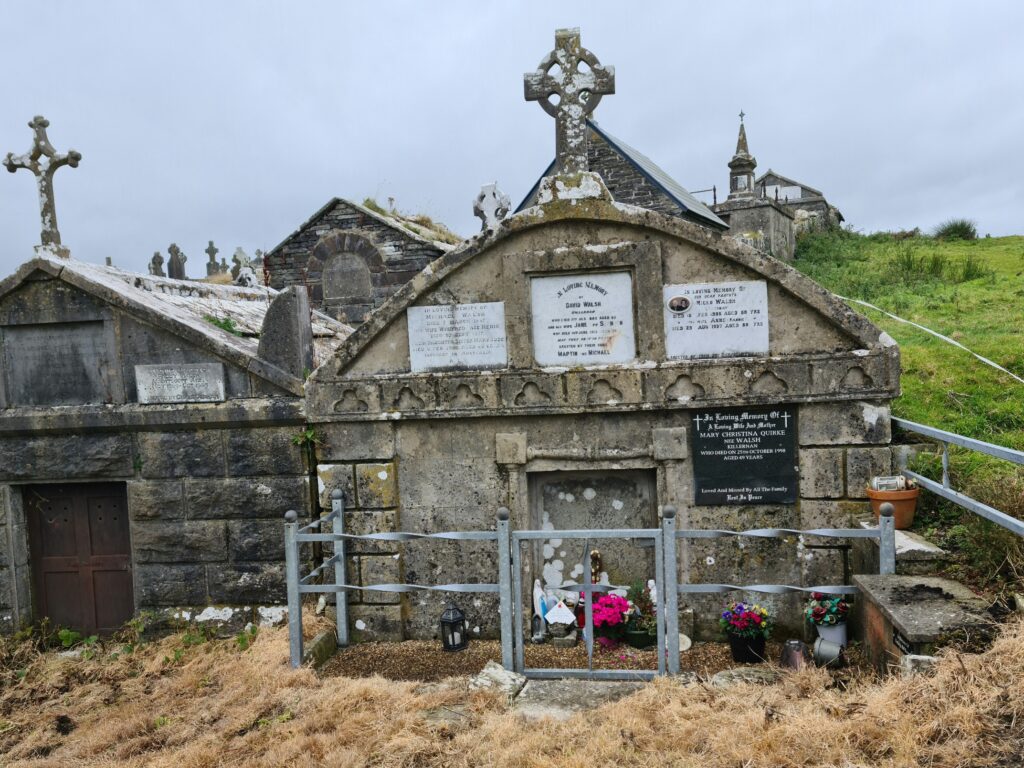
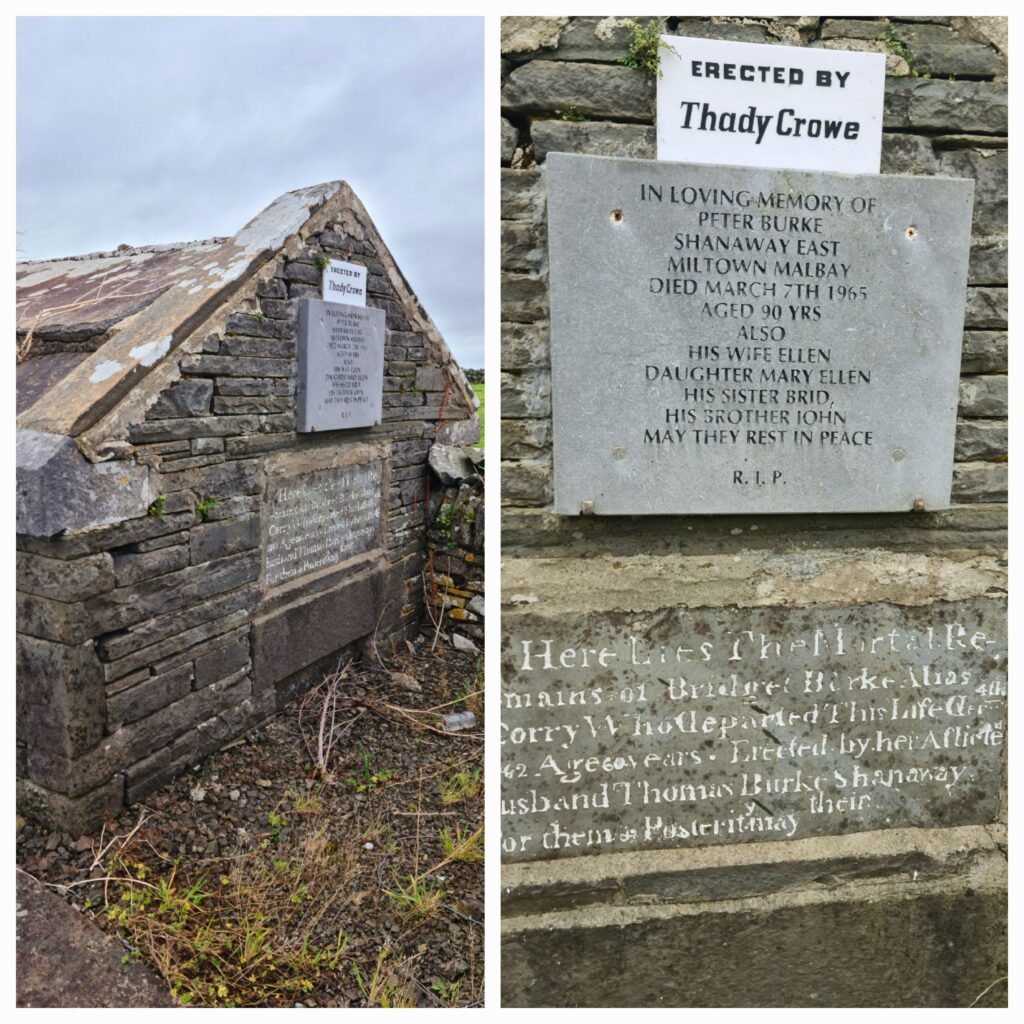
My heart went out to this inscriber for forgetting the y in posterity and having to add the superscript. To get so far and then to miss.
It’s a curious word that seems to have caused some difficulty in this particular graveyard as I found a second instance, this time a misspelling (or perhaps an old spelling): For him and prosterity. For him and his descendants.
This Mary Murphy died the year I was born. It was a little unnerving seeing so many namesakes all with time served.
![Brown marble headstone flanked with white pillers. Writing read: In loving memory of Tidg na NOR for him and prosterity [sic] left Wexford 1798 died Kinturk 1839. Patrick Murphy died 1911. His Wife Mary, died 1966. Their sons James died 1946, John died 1955, Thomas died 1975, Michael died 1982, Their daughter Delia died 1943. RIP](https://dyingtogetin.com/wp-content/uploads/2024/09/20240914_130454_resized-1024x768.jpg)
Another word used made me laugh aloud: alias.
Alias derives from the Latin aliās (short for aliās dictus – at other times called). Née is the feminine past particle of the French, naître, to be born from the Latin nasci. I have only a handful of regrets in my life and one is not taking Latin in school. It would have saved me wanting to watch reruns of Alias Smith and Jones.
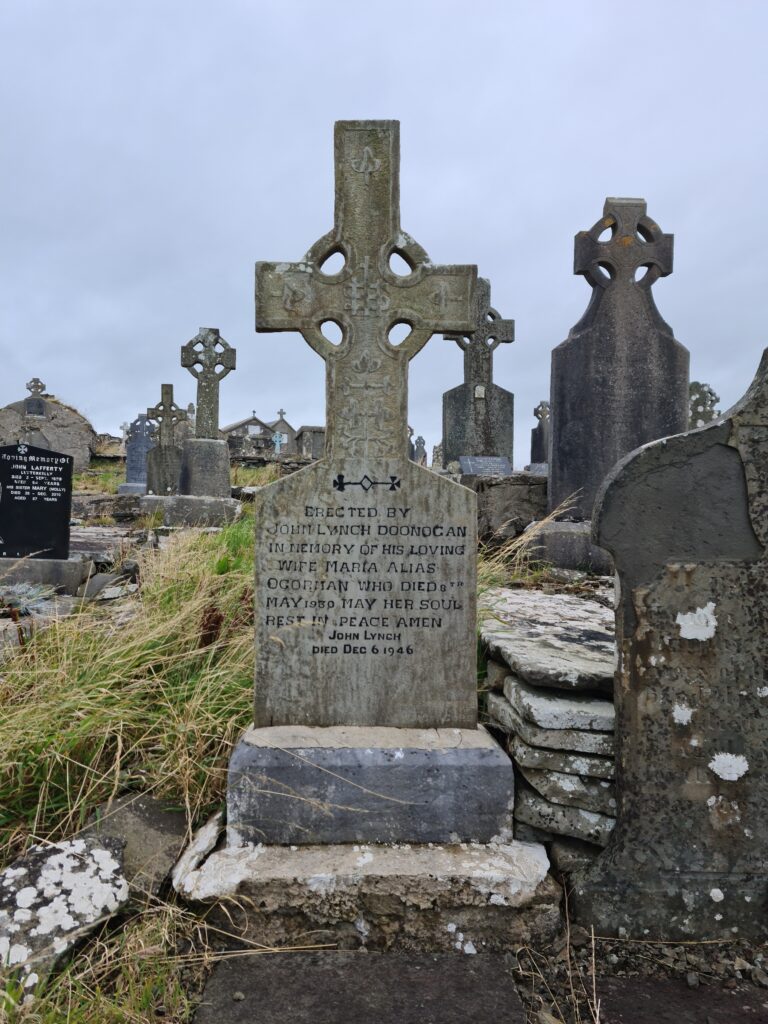
The newness on some graves added clarity. Many of the gravestones are old and weathered, the inscriptions faded by centuries of rain and hail. The headstones seem to be faring better.
In this one, the inconsistency is compelling. Birth replaced by death replaced by baptism – is there an order of importance there I wonder.
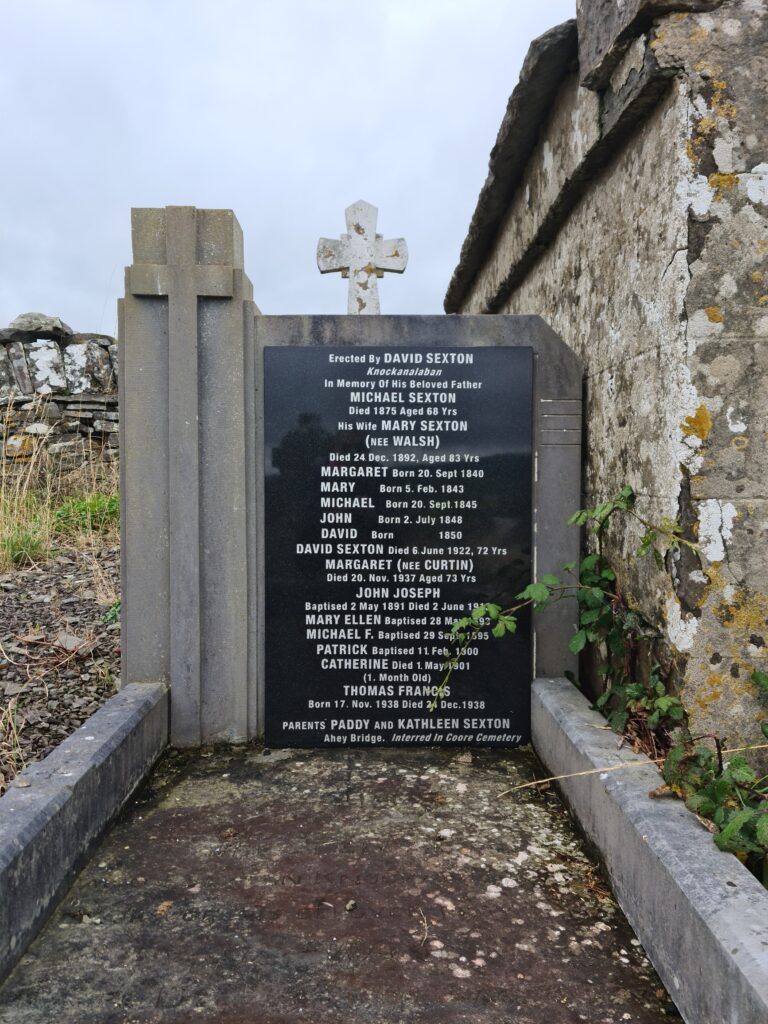
The gravestones (the horizontal slabs) and Celtic cross headstones I’m familiar with. The gabled tombs not so much. That said, I love the idea of having a house of sorts to while out my post-soul release; it’s much more appealing than being six feet under. And to get a new roof – that’d be a bonus.
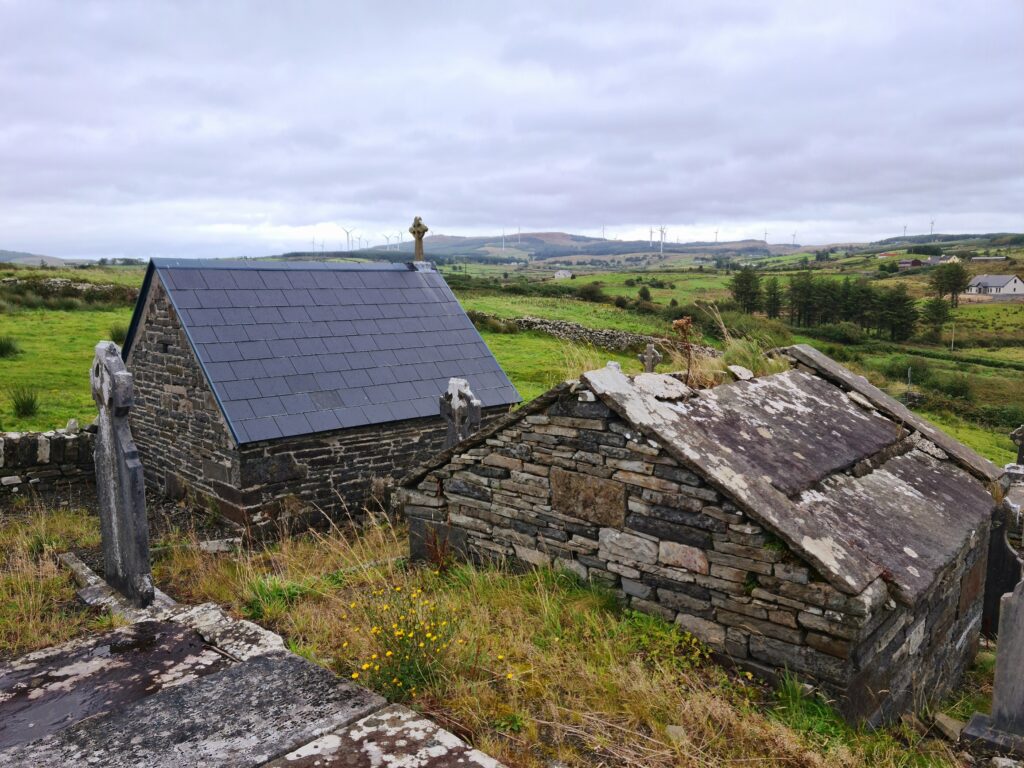
And yet there was a sense of prison about some of them, with their metal doors, locked up for eternity. I wonder if they still have the key.
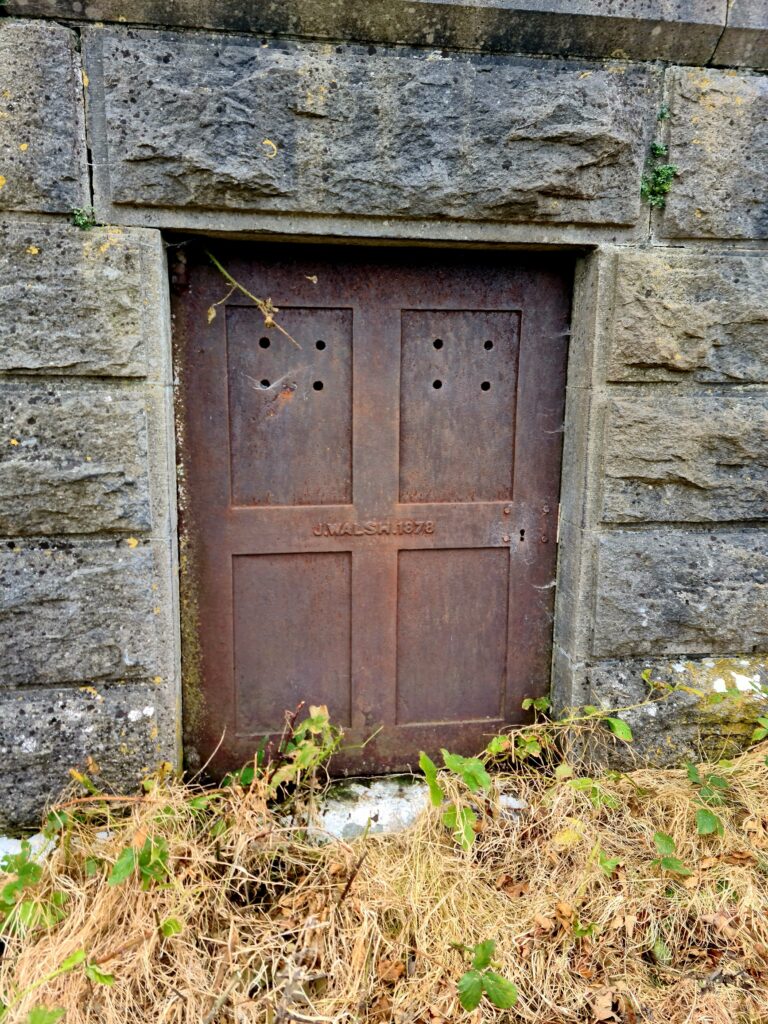

No graveyard in the west of Ireland worth its salt would be without a holy well and Killernan is no exception. It has two. One, dedicated to Our Lady, is well attended. The other, and more poignant, is one dedicated to a St Earnan. There are at least four saints with that spelling and another 21 with variations like Ernin, Ernan, and Ernain. The rabbit hole is here if you’d like to go down it.

And, while you’re at it, perhaps you can give me some context for this Irish epitaph on the grave of Patrick O’Neill of Shanavoe who died on 28 January 1914 aged 58, his headstone erected by his friends and fellow nationalists: Bhí and casán garbh ach díreach – the turn was rough but straight.
It’s a beautiful spot, one I could spend longer in than the rain allowed. So much history, so many stories, so many memories.
